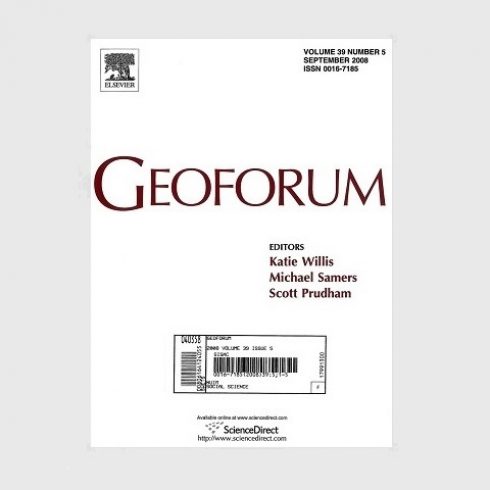Globalisation in Practice
On the politics of boiling pigswill
John Law and Annemarie Mol
Geoforum 2008

Abstract
This paper is about ‘material politics’. It argues that this may be understood as a material ordering of the world in a way that contrasts this with other and equally possible alternative modes of ordering. It also suggests that while material politics may well involve words, it is not discursive in kind. This argument is made for the mundane and material practice of boiling pigswill that the 2001 UK foot and mouth outbreak showed to have a layered importance. Boiling pigswill was a political technique in at least three different ways. First it made difference, dividing the rich from the poor by separating disease free countries from those in which foot and mouth is endemic. Second, it joined times and places by linking past agricultural practices with those of the contemporary world, and linking Britain with the world. And third, it also showed a way of limiting food scarcity on a world wide scale because it allowed food to be recycled, albeit on a small scale, in a region of plenty. ‘Politics’ is often linked to debate, discussion, or explicit contestation. Alternatively, it is sometimes seen as being embedded in and carried by artefacts. For the case of boiling pigswill neither approach is satisfactory. The first privileges the life of the mind while in the second politics is linked too strongly to a single order. The version of politics presented here foregrounds both materiality and difference. And it involves articulation: the question is not whether something is political all by itself but whether it can be called political as part of the process of analysing it.
View Publication > Share
Share






Commentary
The latest commentary on the use of antimicrobials in society.
Welcome to the AMIS Hub!
The story of ‘How do we get patients to stop demanding antibiotics?' to where we are now.
Markets and Pharmaceuticals: Hardship, Antibiotics, and Markets for...
Northern Thailand (Chiang Rai), 19 March 2018, 7am: The steep mountain road winds through rice fields, small streams, and coffee...
Submissions to the AMIS Hub
Are you a social scientist who is working in antimicrobial resistance (AMR)?